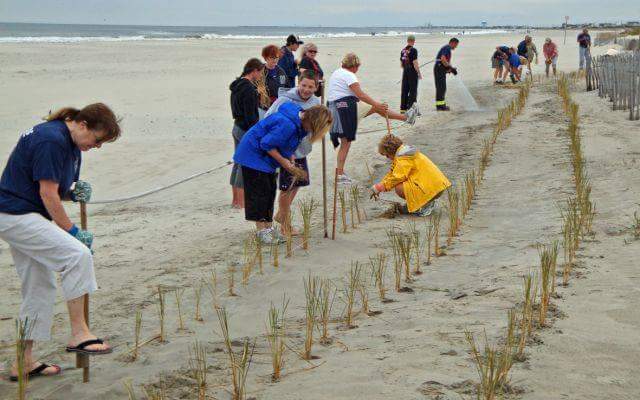Climate change and rising seas directly impact the ecology of the ocean and coastal communities. The Society advocates for carbon pollution mitigation and nature-based solutions to adapt to climate change and promote coastal resiliency.
|
Climate change affects the ocean, coast and their resources directly. Rising sea level and changing flooding patterns may significantly influence decisions about where and how we can live along the coast, as well as the continued health of tidal marshes and important fisheries habitats.
The Society advocates for both mitigation of carbon pollution and adaptation to the impacts of climate change. Following Hurricane Sandy, we have worked to promote community and ecological resiliency through the use of natural and nature-based approaches to storm hazard mitigation. |
Issues
Carbon emissions and other factors contribute to climate change and in turn lead to rising temperatures which cause polar ice to melt and sea levels to rise. The instability of weather patterns and increased strength of storms create unpredictable and possibly dangerous climates. Storms and higher tides threaten coastal communities where a large percentage of the US population resides endangering, people, places, wildlife and the country's economic health. Wetlands, where many marine species begin their lives are threatened by rising sea levels.
Our Position
The Society advocates for coastal policies which address a changing climate, incuding increased use of nature based solutions like “living shorelines” to protect coastal communities, better community planning to keep people and property out of harm’s way, and the conservation and restoration of important coastal habitats like salt marshes, beach and dune systems and oyster reefs. We actively work to insure tidal marshes are not drowned by rising seas and to enhance their ability to sequester carbon.
What You Can Do
Urge decision-makers to take climate change seriously, support efforts to protect coastal habitats and urge your community to assess its vulnerability, and encourage them to plan responses to a changing coast.


